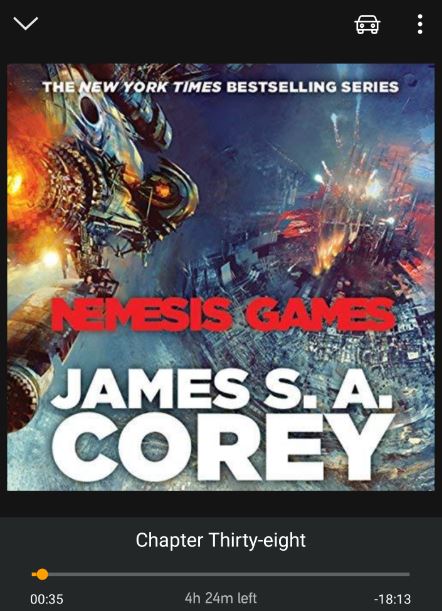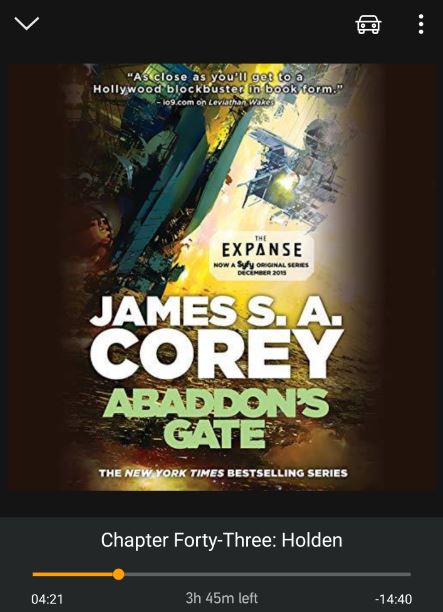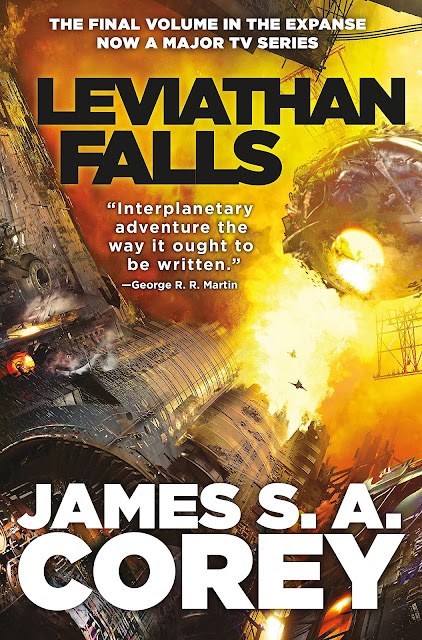Happy Friday obscurists, it’s May the 15th —the 15th is always a happy day for me because it is always a new book(s) day for me. Today’s review is of the first novel in “The Expanse” series, “
Leviathan Wakes” by James S.A. Corey, a science fiction space opera. There are arguments to be made that it could be classified as science fiction/horror, but I personally think of it as Space Opera with horror elements.
***The Non-Spoiler part of this review***
What I love about this book:
A lot—it’s in space, there are big titanic spaceship battles, there is a scary biological weapon that at first transforms people into zombie-like husks that mutate further into horrible glowy abominations. It’s got that “Game of Thrones” feel with several parties all following conflicting motivations/political machinations. Oh, and it’s quite funny here and there.
For this first book, there are only two perspective characters, and they have dueling outlooks on life. Holden is the idealist, and Miller is the pragmatist. I’ve only read the next three novels in this series as of today, but you never get that dichotomy again with the perspective characters. So in this first novel, since the perspective characters are separate at first, you get a feeling for the scope of the world and then that scope contracts—ironic for a series called “the expanse”—when they meet. After they part ways, the world opens up again, or you could say expands, get it—get it? No, that’s not why the series is titled that, but it’s a funny little observation.
I love the attention to detail to the practical realities of life in space, especially over generations. People who were born in, and lived their entire lives in near null gravity, would be strikingly different in physiology to people who live on Earth. My admiration also extends to the realities of life on ships operating in space. Save for little details like the protomolecule or the Epstein Drive—not that Epstein—everything is presented hard science fiction style as practical outgrowths of technology we have today or can at least describe the mechanics of how they would function. There is no gravity other than what can be generated by either enough mass, constant acceleration, or spin—like reality, so far as we know.
What I don’t love about this book:
Maximum pettiness here, but I hate the cover art, and I continue to hate the cover art for every subsequent novel in this series. The perspective is always odd, and I can never get a sense of what is going on, or the full definition of the objects shown. For me, if you’re not going to go with a clear moment from the story for your cover art, then make it meaningfully symbolic, or have a picture of a character so your audience can go: “hey, that’s so-and-so.”
Also, the ships are described as ugly, which is probably more of an accurate assessment of ship design in a zero-g environment than star wars’ x-wings. But still—I don’t like it, I like my sleek aerodynamic starships even though logically why would you design something to be aerodynamic when it operates in an environment where there is no air.
It may seem like I’m reaching for things that I don’t like about this book, and that’s because I am. “Leviathan Wakes” is one of those novels that hit on nearly every sweet spot for me for a story to have, so it’s a struggle just to find things I don’t like. There isn’t any element of the story that I hate.
This preview is an Amazon Affiliate link;
as an Amazon Associate, I earn from qualifying purchases.
***The Spoiler part of this review***
***Ye be warned to turn back now***











